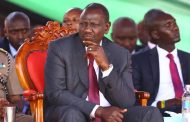Cuba has done it again. It has vaccinated 90% of the population according to a widely circulating story, (TheHill, for example). Cuba created multiple Covid-19 vaccines in addition to aggressive tracing and testing as Covid-19 control measures. The implication is that Cuba ranks second in the world and first in Latin America on vaccination rates. In other words, it did not wait for vaccine handouts from any other global powers to emerge as a global health governance model.
Cuba’s success story in rising up to a complicated emergency as Covid-19 compels the question: what is Cuba’s staying power in world politics? Is it the Socialist revolution? Is it nationalism? Is it qualitative rather than quantitative leadership? Or, could it be cultural or civilisational?
That makes Cuba a debate for Africa, having experienced and is still experiencing imperialism! Meanwhile, read the full story below:
Quote: William Moss, director of the Johns Hopkins International Vaccine Access Center, told Reuters that “it is a truly remarkable accomplishment, given the size of Cuba, and also the U.S. embargo, that restricts their ability to import”

South African president, Cyril Ramaphosa (on the right) speaking angrily in Dakar recently on what Africa is going through in the hands of those controlling the intellectual property rights over Covid-19 vaccines. Not for Cuba
Cuba has managed to vaccinate more of its citizens than most of the world’s larger, richer nations even as the new omicron variant dominates caseloads across the world.
According to an analysis by Reuters, Cuba has vaccinated more than 90 percent of its population with at least one dose of a COVID-19 vaccine, while 83 percent of the island’s population has been fully vaccinated. That puts Cuba second in place globally in vaccination rates among countries with at least 1 million people.
Developed first world nations like Canada have only 77 percent of their population fully vaccinated, while the United Kingdom has 68 percent and Germany 69 percent. In the U.S., the Centers for Disease Control and Prevention says 77 percent of the population has received at least one dose of a COVID-19 vaccine and 61 percent has been fully vaccinated.
What’s allowed Cuba to vaccinate so many citizens is through the development of its very own COVID-19 vaccine, eliminating the need to compete for vaccines like other emerging nations.
According to Reuters, nearly all children aged 2 to 18 have been vaccinated in Cuba through the island’s own vaccine. The World Health Organization (WHO) also says that Cuba has had fewer than 1 million cumulative COVID-19 cases since the pandemic began and administered around 257 vaccine doses per 100 people.
Much of Cuba has resumed normal life, with schools reopening and foreign tourists allowed back in. Hospitals and morgues have also appeared to be operating at pre-pandemic levels.
William Moss, director of the Johns Hopkins International Vaccine Access Center, told Reuters that “it is a truly remarkable accomplishment, given the size of Cuba, and also the U.S. embargo, that restricts their ability to import.”

WHO boss, Dr. Tedros Adhanom Ghebreyesus
A study published in the BMJ found that Cuba’s Abdala COVID-19 vaccine is 92 percent efficacious after three doses. The island has three other vaccine candidates in the pipeline, too, one of which is the Soberana 2, which Cuba’s health agency says has a 91 percent effective rate when combined with a booster vaccine called Soberana Plus.
However, Cuba began rolling out two of its most promising vaccine candidates despite neither having been approved by the country’s regulatory body for emergency use.
The BMJ study also found that Cuba established an aggressive testing, tracing and isolating program, with doctors, nurses and medical students going door to door advising the public on COVID-19 symptoms and searching for potential infections. Cuba has more physicians per head than anywhere else in the world and even dispatched 2,000 of them abroad to help stabilize hospitals in countries like Italy.
Despite the success that Cuba appears to have achieved against fighting the coronavirus pandemic, health experts in other countries are cautious in recommending the island’s vaccines because Cuba hasn’t published results of its vaccine clinical trials in peer-reviewed journals. It also hasn’t submitted any documents required by WHO for approval of its vaccines.
That could change soon as Vicente Verez, head of Cuba’s Finlay Vaccine Institute, told Reuters that documents and data that are necessary in vetting its Soberana vaccines will be delivered to WHO in the first quarter of 2022.
The BMJ report also noted that Cuba had plans to share its vaccines with many countries that faced vaccine shortages and large COVID-19 outbreaks, like Argentina, Mexico and Jamaica. Iran also began mass producing Cuba’s Soberana 2 vaccine after running clinical trials and in June Venezuela became the first foreign nation to receive Cuban vaccines.
Like the rest of the world, Cuba also faces the new omicron variant and Amilcar Perez Riverol, a Brazil-based virologist, told Reuters that “in no way is it time to be proclaiming victory yet.”
According to Reuters, Cuba detected its first case of the omicron variant on Dec. 8.




























